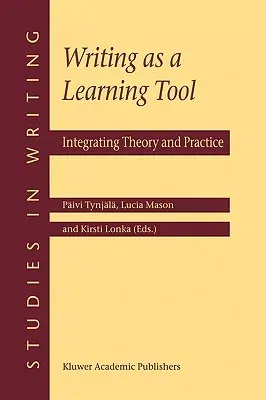Writing as a Learning Tool: Integrating Theory and Practice (2001)Hardcover - 2001, 30 April 2001

Qty
1
Turbo
Ships in 2 - 3 days
In Stock
Free Delivery
Cash on Delivery
15 Days
Free Returns
Secure Checkout

Part of Series
Studies in Writing
Part of Series
Studies in Writing Studies in Writing
Print Length
219 pages
Language
English
Publisher
Springer
Date Published
30 Apr 2001
ISBN-10
0792368770
ISBN-13
9780792368779
Description
Product Details
Book Edition:
2001
Book Format:
Hardcover
Country of Origin:
US
Date Published:
30 April 2001
Dimensions:
23.39 x
15.6 x
1.42 cm
ISBN-10:
0792368770
ISBN-13:
9780792368779
Language:
English
Location:
Dordrecht
Pages:
219
Publisher:
Weight:
503.49 gm